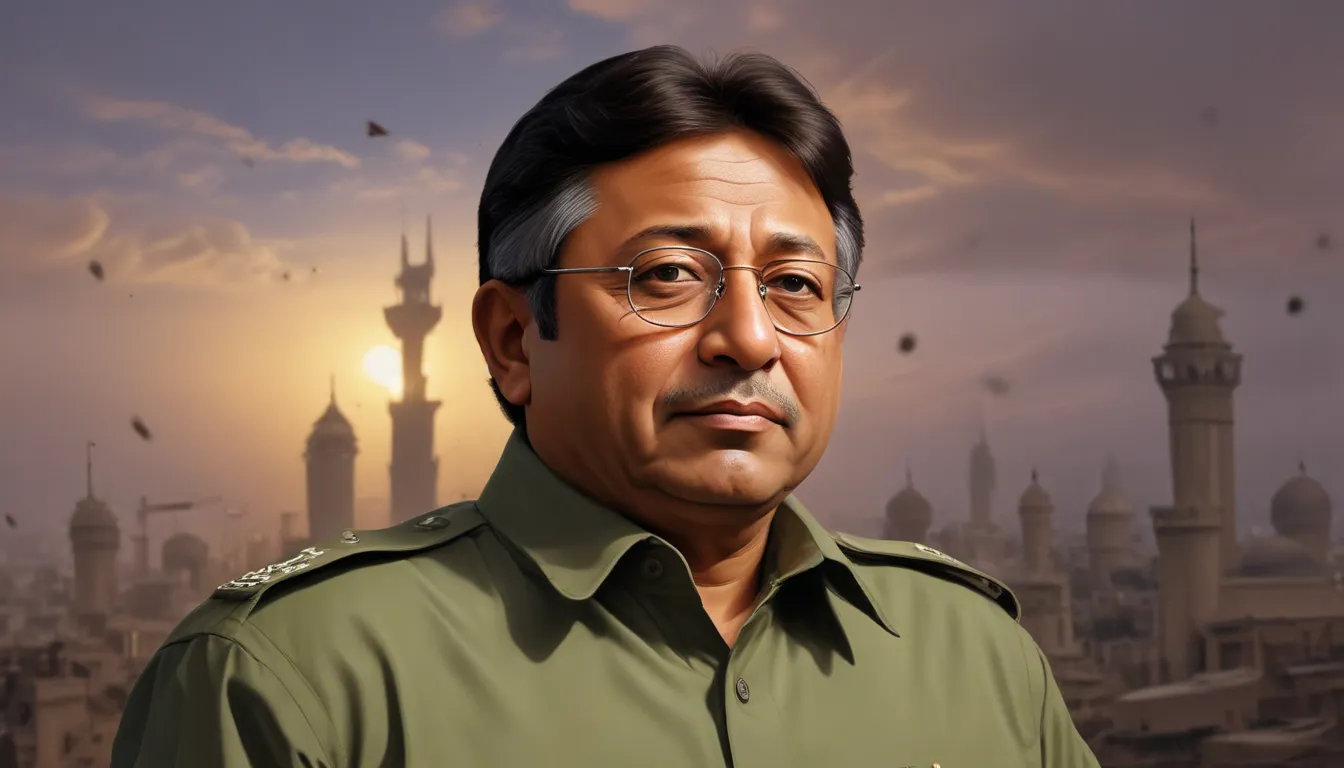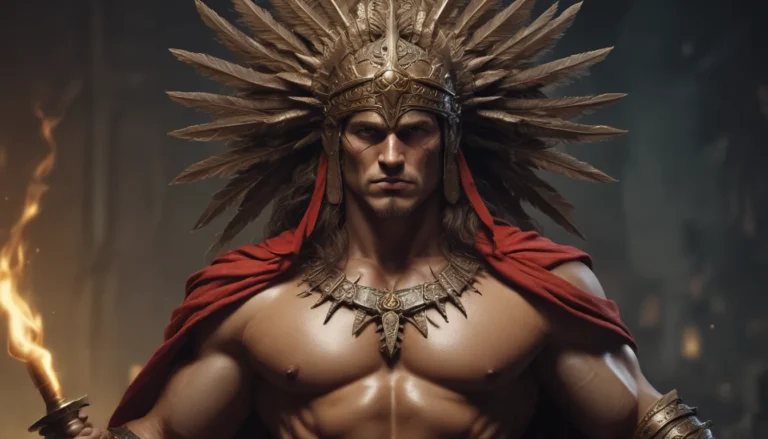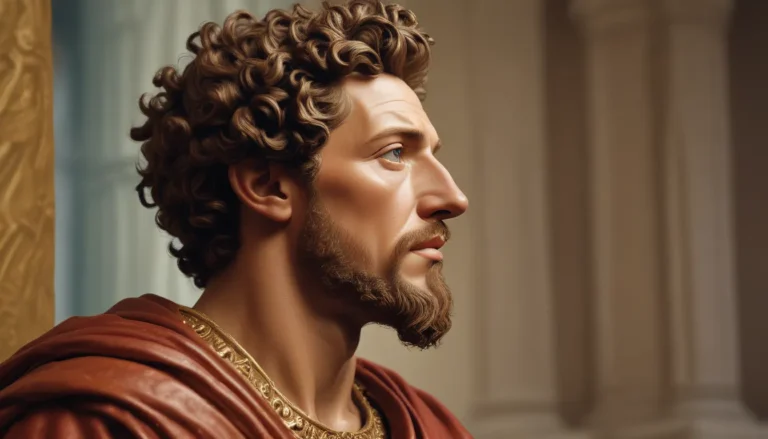The images in our articles may not match the content exactly. They are used to grab your attention, not to show the exact details in the text. The images complement the text but do not replace it.
Pervez Musharraf, a prominent figure in Pakistani history, has garnered both admiration and controversy throughout his career. From his military achievements to his controversial decisions as President of Pakistan, Musharraf’s legacy has sparked intense scrutiny and debate. In this article, we will delve into the life and career of Pervez Musharraf, exploring captivating facts that shed light on his leadership and the events that unfolded during his time in office.
Unveiling Pervez Musharraf’s Journey
Pervez Musharraf was born on August 11, 1943, in Delhi, British India, into a family with a strong military background. Following in their footsteps, he joined the Pakistan Army and quickly rose through the ranks, earning a reputation for his strategic prowess.
Rise to Power as Chief of Army Staff
In 1998, Pervez Musharraf became the Chief of Army Staff (COAS) of the Pakistan Army, a position that allowed him to shape the country’s defense policies and strategies significantly.
The Coup and Seizure of Power
In a pivotal moment in Pakistan’s political history, Musharraf led a bloodless coup in October 1999 against then-Prime Minister Nawaz Sharif. Declaring a state of emergency, he assumed the role of Chief Executive and took control of the government, marking a critical turning point in the nation’s political landscape.
Presidency and Reforms
Musharraf became the President of Pakistan in June 2001, focusing on reforming the economy, modernizing the military, and promoting a moderate and progressive vision for the country. His presidency witnessed various constitutional amendments and significant foreign policy decisions.
Role in the War on Terror
After the 9/11 attacks, Pervez Musharraf played a crucial role in the global War on Terror, pledging support to the United States and combating extremist elements within Pakistan.
Controversies and Challenges
Despite his achievements, Musharraf’s tenure was marked by controversy. His decision to impose a state of emergency in 2007 and suspend the judiciary led to protests and widespread criticism both domestically and internationally.
Resignation and Exile
Facing political pressure, Musharraf resigned as President of Pakistan in 2008 and went into self-imposed exile in London and Dubai, avoiding potential legal challenges and political instability.
Return to Politics and Legal Battles
Musharraf attempted to re-enter Pakistani politics in 2013 but faced numerous legal battles that hindered his impact on the political landscape. He eventually withdrew from politics in 2018.
Personal Life and Interests
Apart from his political and military career, Musharraf’s love for poetry, television appearances, and passion for sports, particularly squash, provide insight into his multifaceted personality.
Health Issues and International Relations
In recent years, Musharraf has faced health challenges, including heart-related issues, limiting his public engagements. Despite this, he fostered diplomatic relations with various countries, mediating peace talks between India and Pakistan and enhancing Pakistan’s global standing.
Legacy and Impact
Pervez Musharraf’s legacy remains a subject of ongoing debate. While some credit him for economic reforms and efforts in combating extremism, others criticize his authoritarian tendencies and controversial decisions.
Peek into Musharraf’s Leadership Style
Musharraf’s leadership style was characterized by his authoritative approach, military background, and emphasis on a strong military presence. He believed in decisive actions and maintaining stability in the face of challenges.
Retirement and Current Status
Currently residing outside of Pakistan, Musharraf avoids political involvement, remaining a prominent figure in the nation’s history and a subject of interest for both domestic and international observers.
Conclusion: A Complex Figure in Pakistani Politics
In conclusion, Pervez Musharraf’s impactful journey in Pakistani politics encompasses both successes and controversies. From economic reforms to navigating geopolitical dynamics, his decisions have left a lasting imprint on the nation’s trajectory. While opinions on his leadership remain divided, Musharraf’s legacy continues to be analyzed, reflecting the intricate challenges faced by leaders in a rapidly evolving world.
FAQs
Q: Who is Pervez Musharraf?
A: Pervez Musharraf is a former Pakistani military officer who served as the President of Pakistan from 1999 to 2008.
Q: What were some of Pervez Musharraf’s accomplishments?
A: His accomplishments include modernizing the economy, improving infrastructure, and playing a key role in the global war on terrorism.
Q: What controversies surrounded Pervez Musharraf’s leadership?
A: Controversies included allegations of human rights violations, the imposition of a state of emergency in 2007, and the removal of the Chief Justice of Pakistan from office.
Q: How did Pervez Musharraf impact Pakistan’s foreign policy?
A: Musharraf worked to enhance relations with the United States and other Western countries while maintaining strategic ties with China and regional powers.
Q: What is Pervez Musharraf’s current situation?
A: Pervez Musharraf currently resides outside of Pakistan due to legal and health issues, largely staying out of the public eye in recent years.
As we reflect on Pervez Musharraf’s captivating journey, his contributions and controversies intertwine, shaping a nuanced narrative of Pakistan’s political landscape. From military excellence to political turbulence, Musharraf’s legacy continues to evoke diverse perspectives and discussions, solidifying his place in history.






